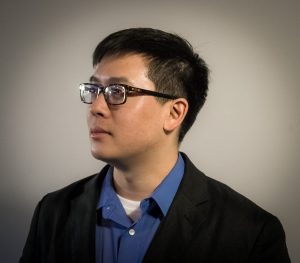2017 Mentored Investigator Grant Recipient — Gilbert Huang, PhD
Project Summary
Each year in our country, more than 22,000 women develop ovarian cancer. Despite progress in surgery and chemotherapy, the disease still proves lethal in 70% of cases. One reason for poor outcomes is the ability of metastatic ovarian cancer cells to escape the effects of treatment and remain dormant for years, only to grow progressively and kill patients. Little is understood of this process. Recent work has shown that certain cancers can use a process called “autophagy” to survive while remaining dormant, cut-off from an adequate blood supply. Through autophagy or “self-eating,” cancer cells consume their own parts to generate much needed energy. Our group has developed the first genetically “inducible” model for dormancy and autophagy in human ovarian cancer, where dormancy and autophagy can be turned on and off in human ovarian cancers growing in immunosuppressed mice by restoring or depleting levels of DIRAS3 (ARHI), a tumor suppressor protein, that initiates autophagy and induces cancer dormancy. The ARHI protein is found in normal cells, but is lost in 60% of primary ovarian cancers, as well as in a majority of cancers from different organs. Replacement of the DIRAS3 protein blocks cancer cell growth, initiates autophagy and induces dormancy. When levels of DIRAS3 are decreased, human tumor grafts grow progressively to kill immunosuppressed mice. In this model, autophagy is required to maintain dormant human cancer cells in a nutrient-poor environment with a poor blood supply. In patients with ovarian cancer who have been treated with surgery and six rounds of chemotherapy, “second-look” operations can detect small deposits of cancer in at least 50% of patients who have a normal CT scan and CA125 level. In more than 80% of these patients with positive second-look operations, the persisting dormant drug-resistant cancer cells are undergoing autophagy. Inhibiting autophagy could starve these dormant cancer cells. Drugs that block autophagy, such as chloroquine, can kill dormant human ovarian cancer cells and delay outgrowth of dormant ovarian cancer grafts. While chloroquine has been used to treat malaria, it can cause adverse side effects including decreased vision. More effective, less toxic inhibitors of autophagy are needed. I have screened DIRAS3-derived protein fragments (peptides) that block the interaction of intact DIRAS3 with a protein called Beclin1 that is required to initiate autophagy. One DIRAS3-derived peptide blocks autophagy in multiple ovarian cancer cell lines. My project will modify the structure of this peptide to block autophagy completely at very low concentrations, to define mechanism(s) by which the optimal peptide works, and to test its activity in our dormancy model. If successful, these peptides could be used in therapy to prevent relapse after primary surgery and chemotherapy in ovarian cancer patients.
Bio
Gilbert Huang, PhD is a postdoctoral fellow in the Department of Experimental Therapeutics at the University of Texas MD Anderson Cancer Center. Dr. Huang earned his Bachelor of Science degree in Biochemistry and Cell Biology at Rice University. He continued his studies at the Baylor College of Medicine, where his PhD dissertation focused on using X-ray crystallography to study cGMP-dependent Protein Kinase (PKG) and its mechanism of cGMP selectivity. He is currently working under the direction of Dr. Robert Bast, where he is investigating ways to target dormant ovarian cancer cells through the inhibition of autophagy.
